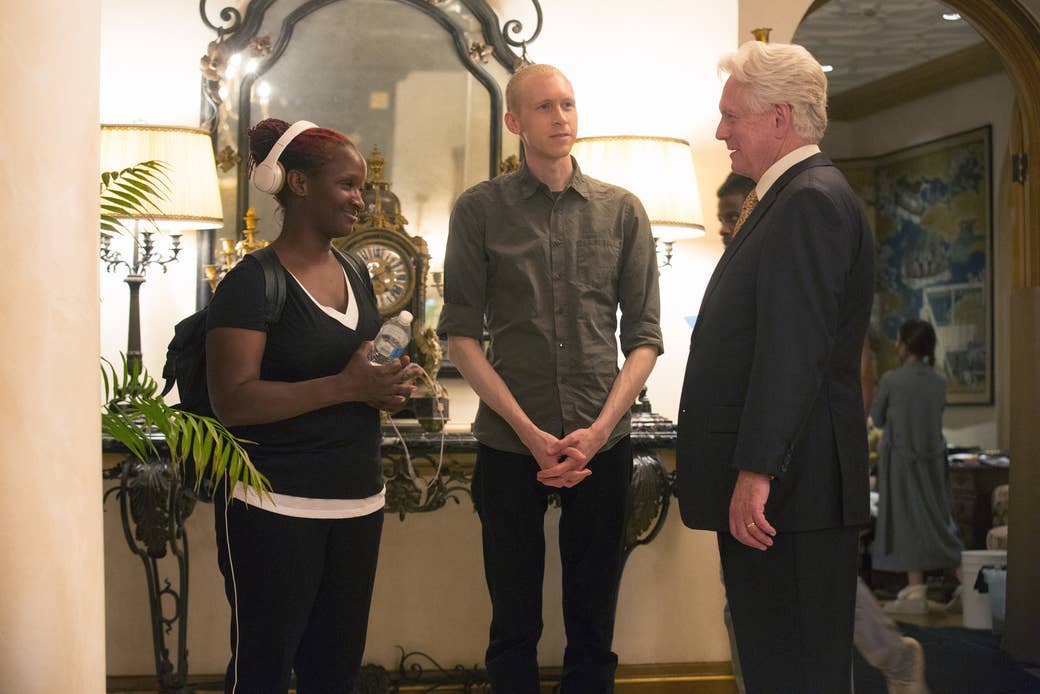
In theory, the aim of HBO's Project Greenlight is to chronicle the trials and tribulations of a first-time director as their moviemaking dreams become a reality. In its fourth season — its first after a decade-long hiatus — executive producers Matt Damon and Ben Affleck led a team that handpicked Jason Mann to shoot a film based on a screenplay called Not Another Pretty Woman.
But in reality, the just-wrapped fourth season of the docuseries almost immediately became about something — or more accurately, someone — else entirely: one of those team members, Effie Brown. The independent film producer (celebrated for her work on 2014's Dear White People, 2002's Real Women Have Curves, and 1999's But I'm a Cheerleader) quickly earned her place in the spotlight after the first episode when she engaged Damon in a conversation about behind-the-scenes diversity that eventually forced the Oscar-winning actor to make a statement.
As the season wore on, the show's focus quickly shifted to Brown and Mann's constant tug-of-war over the script (at Mann's suggestion, HBO scrapped the original screenplay for The Leisure Class, a dark farce he wrote), the budget, the locations, the stunts, and a myriad of other issues that routinely delayed and derailed production.
For viewers, their repeated clashes revealed harsh truths about the role race and gender continue to play in Hollywood today. And for Brown, the experience was equally, if unexpectedly, illuminating.
Over breakfast at Hugo's in West Hollywood, Brown — endearingly incapable of being anything but candid — spoke with BuzzFeed News about Season 4 of Project Greenlight, her relationship with Mann today, and what's next for "Effie T. Brown: Dream Killer."
You've done almost no press for the show. Was that a conscious decision?
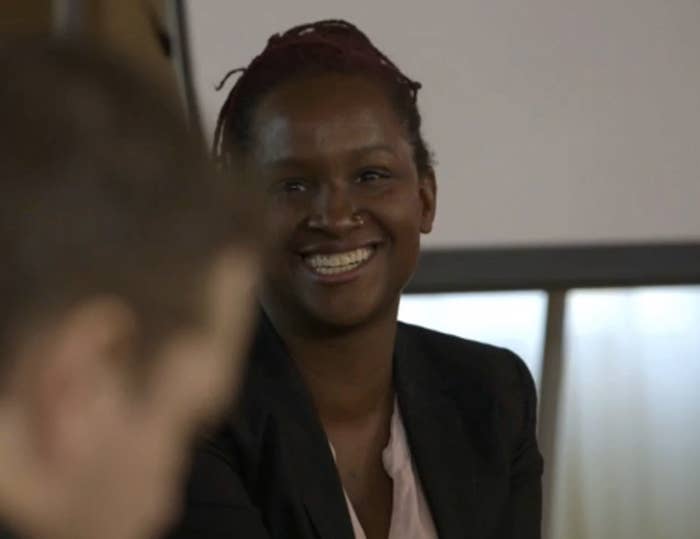
Effie Brown: I just felt like it wasn't about my self-promotion. It really wasn't. I'm not going to lie, I had very specific reasons for going into [Project Greenlight] that I've beaten a dead horse over: I wanted to hire a crew that looked like America so anyone would turn on the TV and see black people, Latino people, Asian people, white people, everybody working together and being like, It can happen! I'm kind of a soapbox chick. I totally admit that. That was spoken in volumes. And then I also wanted to do it a bit because I'm in that world. I feel like I'm the queen of indie movies and I needed to do something where I could break out on a larger level and people could see how hard I worked, what I do, what I'm about, and hopefully bigger things would come to me.
That was the lofty goal, and let's be real, then that first episode came out and, like, am I really going to go up against the biggest movie star in the world and his best friend? You know what I mean? And then you have [Bobby and Peter] Farrelly [brought on to mentor Mann], and then you have Jennifer Todd [president of Pearl Street Films], who, I have to say, I wanted to do this because I was in love with her career and she's a lovely person — I was kind of also in love with Matt Damon. That's the truth. That's where it's just so painful to be like, wow.
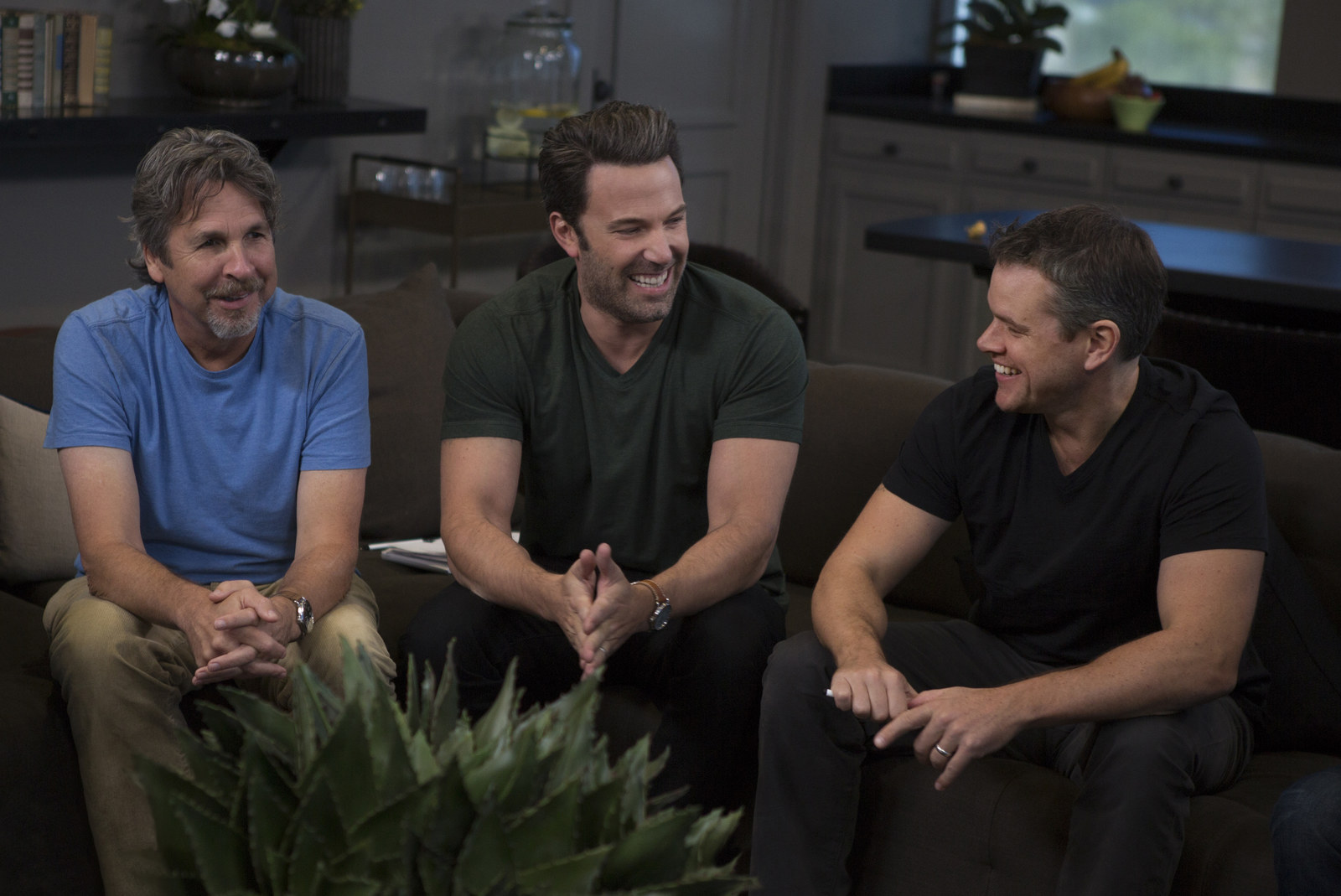
You said that you were not Matt Damon's favorite person— has that relationship changed at all since the show began airing?
EB: There's a funny story about us at the premiere. That's when I realized, Oh, I don't think you're into me. You know how you can read people's microexpressions — like that TV show with Tim Roth [Lie To Me] — that gave me my first clue. I was like, "Hey Matt!" And he did this: [dons a totally blank stare] "Hey..." It was just that moment of being like, oh, I love you but you don't love me. What happened? We're not friends? And then you watch the show and it's like, you really weren't feeling me. Duly noted.
But going back to why I was quiet, I might have played this differently if there wasn't such an uproar after that first episode. And people were lovely. I can't say their names, but I had folks within the camp be like, "OK, this may not be fair, but this is the lay of the land right now. You need to shut up, let other people talk for you, because you will never, ever win." Whatever winning quote-unquote is. I wonder if I'll think I should have milked it more.
Well, it's almost as if you don't have to say anything because you said everything on the show and now the audience is continuing the conversation.
EB: I hope so. I honestly hope so. The thing is, I'm not in control of the narrative of the TV show, and that gave me pause, because I didn't know what they were going to show of me. And I have to be real about that. Jason is talking now, and I think that's great, because we didn't get paid for the TV show, so it was like, why are we doing all this free publicity?
Reality TV producers and editors notoriously condense participants into less dimensional versions of themselves. Jason has said as much about his role on the show. What do you think of the Effie we see onscreen?
EB: I think I got out of it mostly unscathed. It's the character of me, it's not really me. It's me, but it's not a fully full picture of who I am as a producer. I probably was abrasive, I probably have a chip on my shoulder, I was insecure. That's why I kept bringing up, "I did 17 films." What's so pathetic about that is I've done like 23 films. I was saying 17 to have some sort of humblebrag. Looking back, it's like, What were you thinking? I watch the show and realize that nobody else qualified their experience. And that, once again, is my own shit the show showed, and I have to work it out. Why did I feel the need to bring that up all the time? And I know now that I had the most experience on this type of film, but I wasn't being treated that way. I might sound cocky, but in the $3-5 million range, good luck on finding someone that can do it better.
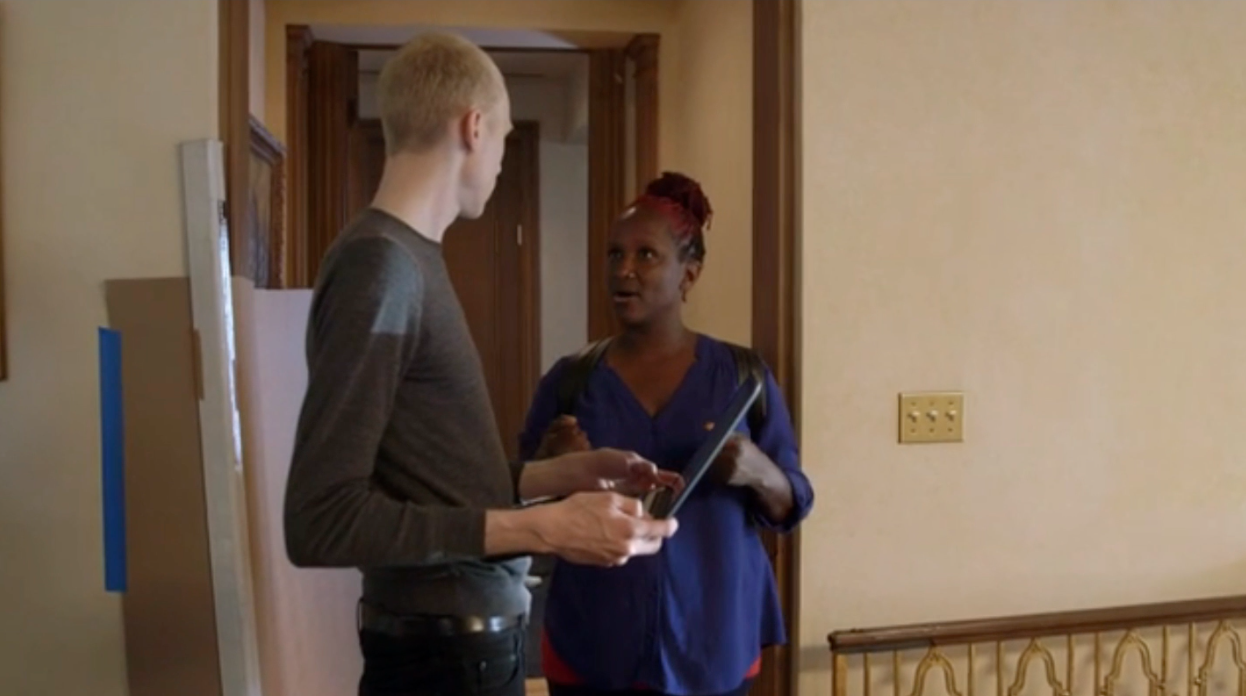
Do you think that's the central issue behind your arguments with Jason: that he diminished what you brought to the table as a producer?
EB: If you had asked me this question two episodes in, I might have had a different answer. But now I have a fuller picture and see the whole arc. I work with first-time directors a lot, and a lot of directors are stalwarts and slightly uncompromising. What was difficult about working with Jason is... Honestly, I like Jason and I have respect for Jason. During that last episode ... there was the whole conversation about the arcs of the women.
Where you talk about having problems with the character of Fiona [Bridget Regan] that the test audience and Amato later echo?
EB: Yes. And then Marc [Joubert, Brown's producing partner on the film] says, like, "Well, Effie did say it" — like there was shit coming out of his mouth. And that to me, it vindicated but slightly embarrassed me that it took other things to validate something I said. Like, nobody dummy-checked Len Amato. Nobody dummy-checked the audience who you didn't even know. But me, all of a sudden it was like, "Oh, it's conventional thinking."
What's telling about your abilities as a producer to identify problems down the road is that you bring up the Fiona issue in Episode 2 and it's never addressed. So the reshoots become all about fixing her character.
EB: Thank you. It makes me sad and I might get emotional, but it's one of those things where...it's hard. If I didn't have to watch it again, I could bury it and move on, but because you have to watch it again, it's slightly hurtful. That slightly insecure part of me wants to be like, "I told you so! I told you so!" But I'm fucking 43, put your big-girl panties on.
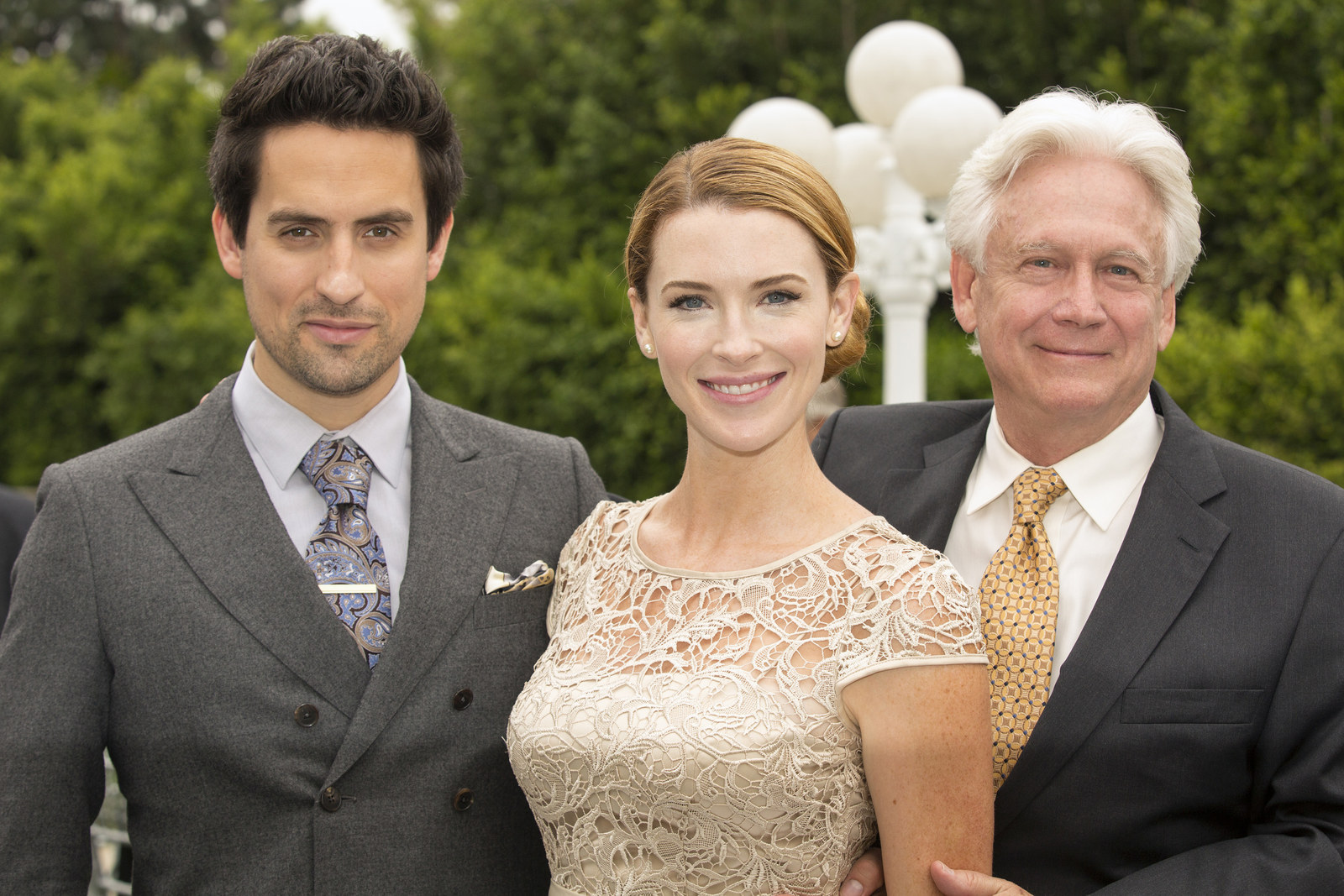
Is that frustration a Project Greenlight issue or a common Hollywood experience for you?
EB: Here's where it's different, and I don't want to throw anybody under the bus, but when I'm making a movie, I'm making a movie from beginning to end. I've never had to work on something as a hired gun, and if they did, maybe I would have that issue. But honestly, if we had our druthers, we would never have worked on The Leisure Class. That script was being written every day. So I think it was a little unfair when they'd say, "Well, it's been in the script," and I'm like, "The script that just got finished two hours ago? Those pages? OK." I do movies I care about, because it's exhausting. That shit they showed, it's hard. You are working 12 to 14 hours a day, you are eating your feelings; that's why I love my crew and we're so ride-or-die together. Which, to me, in my opinion, I was upset about. Nicole Colombie is my UPM [unit production manager], she is my line producer, that was her job. And somehow, she got usurped. Like, "Effie, we're going to negate her contribution and give it to you." Let me say this: I'm not a line producer. I wasn't the line producer on this movie.
Really? Because you are repeatedly called the line producer by several people on the show.
EB: All the time. Ben Affleck says it and I'm like, "Really?" I'm the producer, and people who are producers of things that are low-budget have to know the numbers and the logistics because we don't have the pleasure and privilege of thinking somebody else will take care of it. We are the people who are like, "We have two cents? We better make this shit work." There's a hierarchy and there's a path where you move up, and that was telling to me that they couldn't even accept me as a producer, they had to knock me back. Because what's even worse is, if I was the line producer, who was producing the movie then? And that was the trip to me.
What was your mental state like while making this movie?
EB: Honestly, you don't really think about it. You move forward. You have a goal in mind and a destination, and you just gotta slog through. I'm not feeling benevolent, but I have to say, Jason had a camera on him for damn near 18 hours a day every day since November, and never once did he lose his cool. You know what I'm saying? Anybody else would have lost their shit once or twice. Even when we were doing the show, we — and I mean the royal we — had moments of compassion of like, "Dude, that kid is going through a lot." He was under a microscope, and my understanding during the show was that it was supposed to be about him. We were supporting characters, and I was more concerned they were going to cut me to be the angry black woman or the villain because they have to show this kid triumphing in the end and being the hero because that's Project Greenlight.
And, honestly, I have to say, I have a lot of respect for Jason. I like Jason. Do I think me and Jason were a good fit? No. I wish they had an OkCupid for producers and directors, because it is a little bit like a marriage, and we were thrown together and we are two completely opposite personalities. We would have never chosen each other.
But you really fight for Jason to be chosen to direct this film in the beginning.
EB: I know I chose and was like a fighter for Jason because I don't care what anyone says, even if people think he treated me terribly, you can't tell me that boy's three-minute short wasn't the best one out of them all. He really has it.
There were several integral disagreements in the dissolution of your relationship with Jason, most notably the fight over the car stunt. In watching the show, did you ever see his side in those situations?
EB: Absolutely. I called and apologized after the horrible "Hot Ghetto Mess" one. I saw the cut and it was called, like, Episode 406. It was on me to be a better communicator, regardless if every conversation with him was painful, because that was my job. The powers that be came down and said, "I don't care that you have the money, Effie" — because I did — they didn't feel that we were going to be able to execute [the stunt] in a safe manner. What I didn't do, which is on me, is I didn't go back [to him] and say, "We got completely shut down." Because, in my mind, I was trying to get him everything he needed. It was all being worked out, but during that time where I was a stuttering mess because I was like, I'm going to wring this kid's neck, I saw that he had no idea no one liked talking to him. And it wasn't just me on that phone call, by the way, but anything shitty was Effie's fault. When there are triumphs, they chose to show someone else telling him. You know what I mean? Think about it.
What did you think when HBO released the deleted scene of you saying "hot ghetto mess" after that episode title became a big deal on Twitter?
EB: OK, so here's what happened with that. The thing is I didn't know that it was titled "Hot Ghetto Mess" until Twitter, and I looked at it and thought, You've got to be kidding me. It's not called that. And then W. Kamau Bell — god bless him, by the way. And I don't even know him. I haven't met him face to face, but when I do I will give him a big hug and kiss because he was so helpful of getting the conversation going. The next day when [the deleted scene] came out, I was embarrassed. Now, look, I say a lot of things. Have I said "hot ghetto mess" before? Absolutely. I've said lots of things, but you can't title an episode that. It's like, I can talk about my mother, but you can't. And then, I'm not even saying it in the episode, nor is there anything that was a hot ghetto mess in that episode.
What you do see is me pulling a [black] extra who was going to play a chauffeur. What was interesting was that it was a production mistake calling it that. OK. Nobody needs to be taken to task for a mistake — fix it. But I was going to do an interview the next morning, and what was shitty about it is that we talked about it and they were like, "Well, we have a clip of you saying it," and I'm like, "You have clips of me saying all sorts of things, and this is, once again, the person who didn't get paid for the show, has no financial investment in the show, being thrown under the bus. It's not OK. It's not OK. What you're doing is trying to absolve your guilt." So then they decided to issue a random apology — my name was never said in the apology, nothing like that. So that happened. And then, after I do this interview, all of a sudden it's out. All of a sudden. And that's when I felt upset. I was told it was another production mistake.
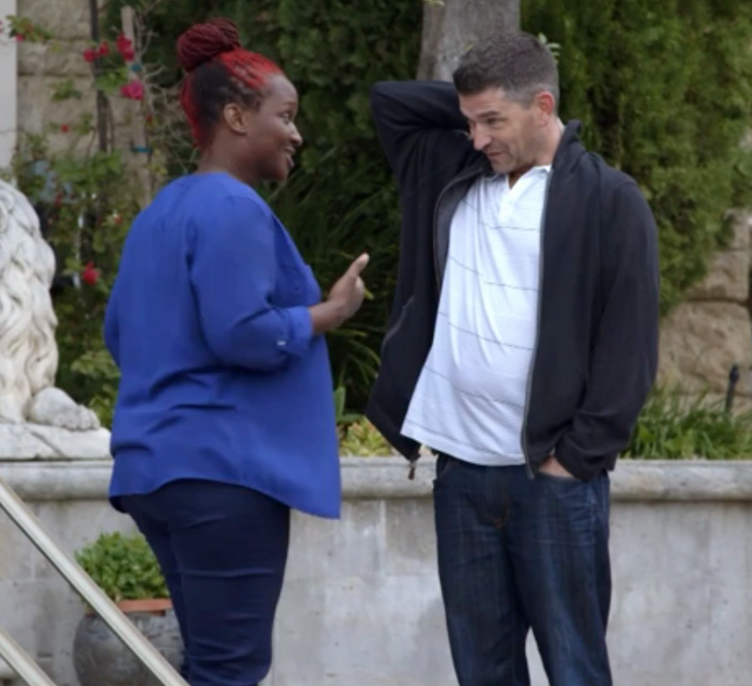
You have been very complimentary of HBO and Len Amato throughout this entire process. What about other people we've seen you interact with on the show?
EB: It's complicated. I have a lot of hurt feelings, and it's personal, because it was with my producing partner [Marc Joubert]. And that's the thing, watching the show, that Jason and I bonded over — we were both like, "Oh my god, that's what was being said about us when we didn't know?" This is my perception, this is me talking, I haven't heard [Marc] talk about it, but this is me: We had an agreement where we weren't going to talk shit about each other. We had an agreement. I'm not trying to damn anybody, but we were not going to talk bad about each other, we were going to have each other's backs, and then watching it like, "Oh my god." It was something totally different. I don't know why I thought that it would be different when he is the executive producer on the TV show as well as the producer on the film. That was me being naive. It was dumb of me to think that was really going to be carried out, because I never say a shitty thing about him, and that is painful. Although maybe it's the best that I never say anything shitty about him at all.
In the season finale, you're shown leaving the production after filming wraps, but before reshoots.
EB: Ummmm.
Is that not what really happened?
EB: Um, no. So this is what really happened. I had about $280,000 saved from wrapping on time and cutting deals and literally week-by-week saving bits. I saved that money with my team and with hard work, which is why I was such a taskmaster. I knew that we were moving so fast and [Jason] would need connective tissues because there would be scenes that just aren't going to work. I'm not going to send a broken movie out there. It is not my type of movie, but I was going to make sure that he got to make the kind of movie he wanted to make.
We were on a call with HBO — it was this call and not the [lobby] meeting that is in the show — and it was with the head of production, the head of post, the producers, Marc, and all of that, where Jason took me to task in a very public way, saying, "Effie, you said we could do it all." Basically saying that I lied to him — again — because he didn't have any good faith in me at all at the end of production and now he's gunning for me. And his perspective, I can understand why. But he took me to task so much so that the HBO people had to defend me. They said, "Jason, no. It's a really good thing that Effie did this, because we wouldn't be talking about reshoots at all otherwise if she hadn't saved the money." And then he came at me again. That's when I was like, "I'm done." And I say "done" in the sense that I didn't feel I needed to produce one day of reshoots. Because what would have happened ... if I got on set, you know that moment every reality show is looking for? It would have happened. I outweigh the kid by 70 pounds and I'm from Jersey and I have 43 years of rage in me. If he would have said one thing...it was better to remove myself at that point.
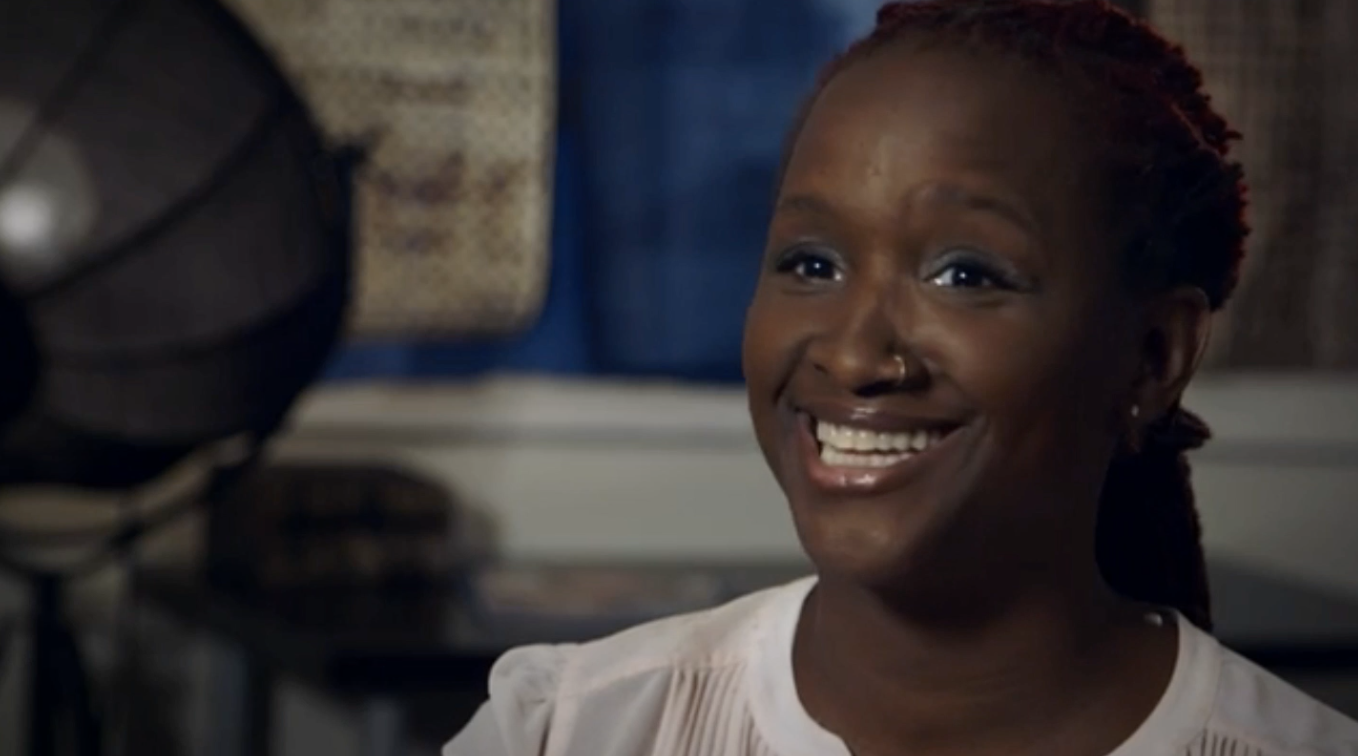
But you didn't quit?
EB: No! I was in the [sound] mix, I was in the color timing, I was at ADR, I was in post. I just didn't do one day of reshoots. Let's be real. One day. Everything else, I was there to the bitter end. I'm still signing checks. I'm still doing stuff on the movie. That's where it's like, OK, that's a total and complete lie. But it's a good story!
As you said earlier, Project Greenlight is a very prominent platform given producers are often behind the camera. Did you feel any pressure that you were representing anyone — black people, women, black female producers — other than yourself on the show?
EB: I certainly didn't feel like I was speaking for everybody, because that's bullshit. But I did feel I was in a position to show. I was in a position to get really wonderful, über-qualified people, talk them into being on camera by being like, "Remember when we were coming up and we never saw ourselves doing anything in film?" In all the other Project Greenlights, I never saw a person of color — I barely saw a woman. This is a new day and age, and we need different voices. We need other people to recognize, "I can do that." We also need people to realize there's more than being a producer, a director, or a writer — there's location, there's an AD, there's stunt; you get to see all of that and that there's a place for you there. That's the thing I will take a bullet for. That's what I am all about, I was about that at the very beginning, and I will give the Project Greenlight company credit, because they were all for that inclusiveness. They were supportive of that, and I do feel they wanted that.
What did you learn about yourself as a producer by watching yourself on the show?
EB: I will never wear some of the same outfits that I wore again. [laughs] I love myself and it's fine, but the mirror lied. But my biggest thing about watching me at work was realizing I have some shit to work on, and a lot of that has to do with always feeling like I have to be on the offensive. But then I look at it and think, How else was I supposed to react to that when there are people disregarding me or not taking my expertise?
And then I do think a little sugar will get me further. It pisses me off that I have to think that way or do that, because if I were a man, I would not have to, but you know what? I'm not a man. This is where I am right now, and if I want to succeed in this business and do more and tell more authentic stories from the Other, I'm going to have to learn. I feel like I play checkers and everyone else is playing chess. I'm swimming with a whole different league now, and my style isn't necessarily as conducive as it once was in this new echelon. I'm a hard worker, I bust my ass as a producer, I'm really great at my job, but I have a chip on my shoulder. I am a flawed person in a really difficult situation with other flawed people, and it just happened I have a camera on me, so that's awesome.
How do you feel about Jason now?
EB: I saw him on Saturday in New York — we hung out for like an hour. We hugged. We have pictures! We both were naive. We both should have seen this coming, but I feel for him because that was a big bait and switch.
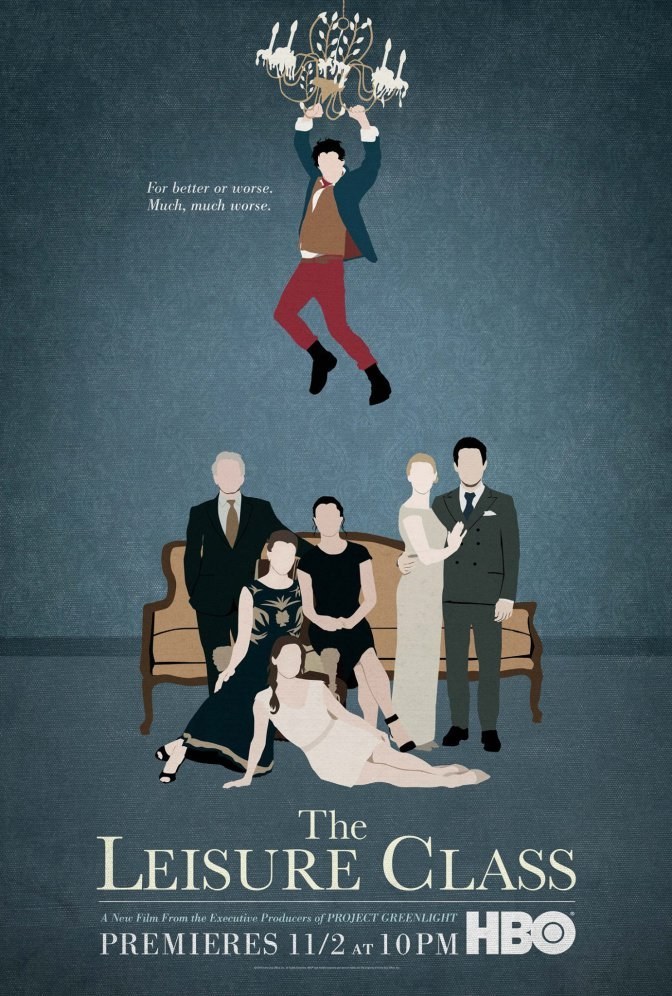
What do you think about The Leisure Class as a movie?
EB: This is where I will let other people talk for me. At the end of the day, all I could fall back on was: I hope this is the movie Jason wanted to make and is happy with it. That's all I got. I'm waiting for people to blame the movie on me. [laughs] I'm waiting for Marc to say it's my fault.
Do you have any regrets about agreeing to be on Project Greenlight?
EB: No, I don't regret it. I don't feel like I was set up. I really don't. I do feel like there was an organic turning of the story. When I first came in, it was going to be about the director, but they were perceptive enough to know the real story was between us two. The people who actually, physically worked on Project Greenlight were fucking lovely. The thing is, it was me. If I were watching somebody else do this, I would love the show and I would talk about it and I would tweet about it, but it was me. It was definitely cut for entertainment, but all that stuff happened. People are like, "All that stuff is made up," and I think, It would be a lot easier if it were.
This interview has been edited and condensed.
